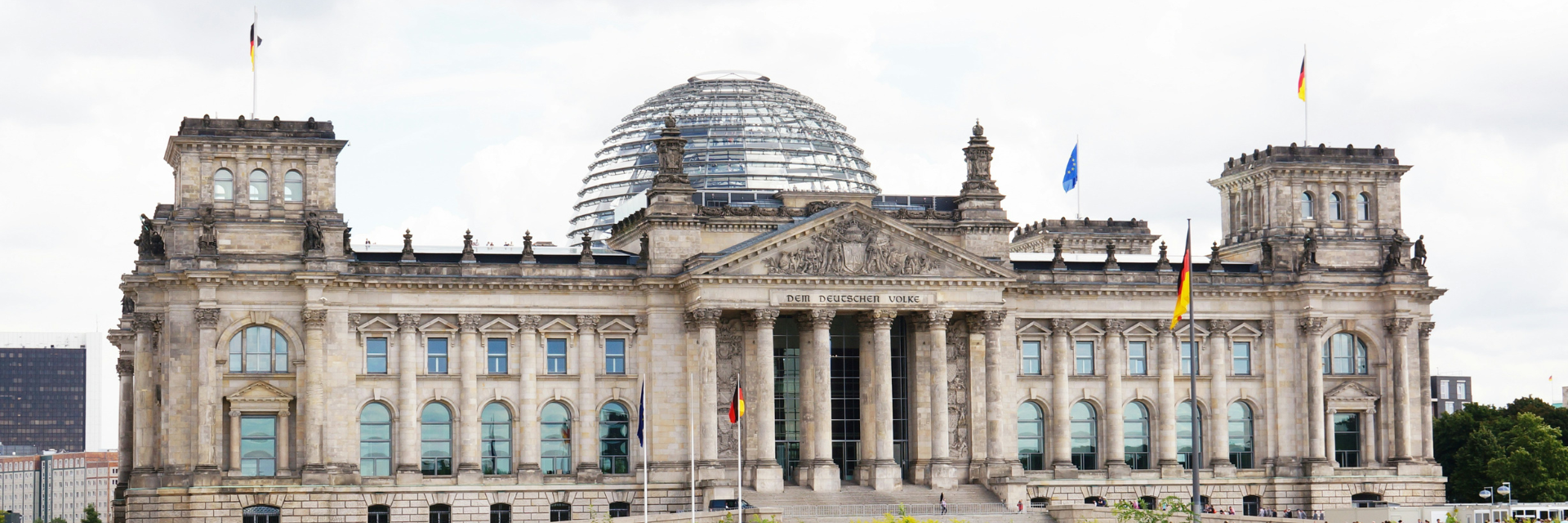Blog by Tarik Oran, Vera Bibas, and Julia Brandkamp from the Dods Germany team
On Tuesday, December 17, 2024, Friedrich Merz, the chairman of the Christian Democrats (CDU) and Chancellor candidate for the CDU/CSU Union, alongside Markus Söder, leader of the Christian Social Union of Bavaria (CSU) and Bavarian Prime Minister, unveiled their joint election programme ahead of the 2025 federal elections. The message was clear: the Union wants to lead without internal disputes and restore the predictability and reliability of government policies. “We want a government that is reliable, calculable, and able to plan again,” Merz said during the announcement.
In 79 pages, the programme, titled “Political Change for Germany”, outlines a distinctly conservative approach to the country’s current challenges. At its heart is an ambition to revitalise Germany’s economy, with a strong emphasis on reducing tax burdens and minimising bureaucratic requirements. Under the election slogan “We act”, the Union proposes broad tax cuts, including reductions in corporate tax rates, VAT in the hospitality sector, income tax rates, and capped electricity network charges.
However, despite these promises of tax relief, the programme is adamant about maintaining the “debt brake” (Schuldenbremse) enshrined in the German Constitution. “We are committed to the debt brake. Today’s debt is tomorrow’s tax hikes,” the programme reads. In response, economists and critics are raising doubts about how these plans may be financed. The German Economic Institute estimates a financial shortfall of 90 billion euros, with Merz hinting at possible cuts to social welfare and refugee assistance to fill the gap, though details remain vague.
Immigration policy is another key focus. The Union advocates for a much tougher stance, proposing measures such as border pushbacks, deportations to countries such as Afghanistan and Syria, revoking dual citizenship for those convicted of crimes, and replacing cash benefits with in-kind aid. The programme also includes security measures such as electronic ankle monitors for sex offenders and increased video surveillance at crime hotspots.
Concerning foreign affairs, the Union is urging for a firm defence and security policy. Central to their plan is the continued support for Ukraine, including arms deliveries and backing its EU accession prospects. They also call for a reform of Germany’s armed forces, the establishment of a National Security Council, and a strategic plan to counter China’s growing influence. The Union also reaffirmed its commitment to Israel’s right to exist throughout the programme.
In terms of social policy, CDU and CSU are pushing for a reform of the citizen’s income (Bürgergeld), that guarantees a minimum income for low-income citizens, and the introduction of an active pension model. They have made it clear that the pension level and retirement age will not be changed and that there will be no cuts to pensions under their legislation.
Regarding climate and environmental policy, the Union presents itself committed to achieving climate neutrality by 2045, with a focus on circular economy and agricultural support. However, the parties appear hesitant in their programme to back those promises with specific climate protection measures. Instead, the programme promises to reverse policies, such as the controversial heating law, the phase-out of internal combustion engines, and the cancellation of agricultural diesel tax exemptions. The Union also indicates a willingness to reassess the potential of nuclear energy, particularly fourth and fifth-generation reactors.
With this programme, the Union positions itself clearly as the counterpoint to the left-leaning social policies of the SPD and the Green Party’s extensive climate agenda. It seeks to capitalise on the growing public discontent with the current government’s direction, offering a vision of a more conservative, business-friendly Germany. For many voters, this could offer a welcome alternative after years of political fragmentation.
Germany’s federal elections will take place on February 23, 2025. The other parties are set to release their party programmes within the next weeks.
If you wish to stay up to date on the upcoming election programmes and receive daily updates, exclusive analyses and MEP candidate lists, make sure to subscribe to our 2025 German Elections package:
